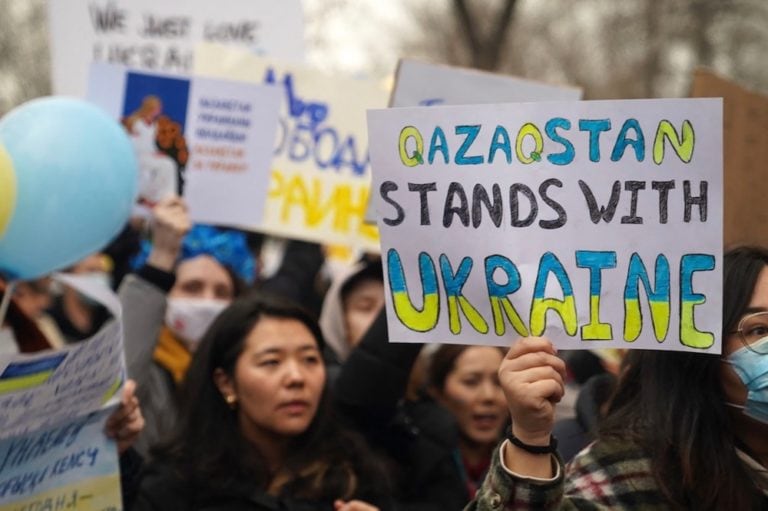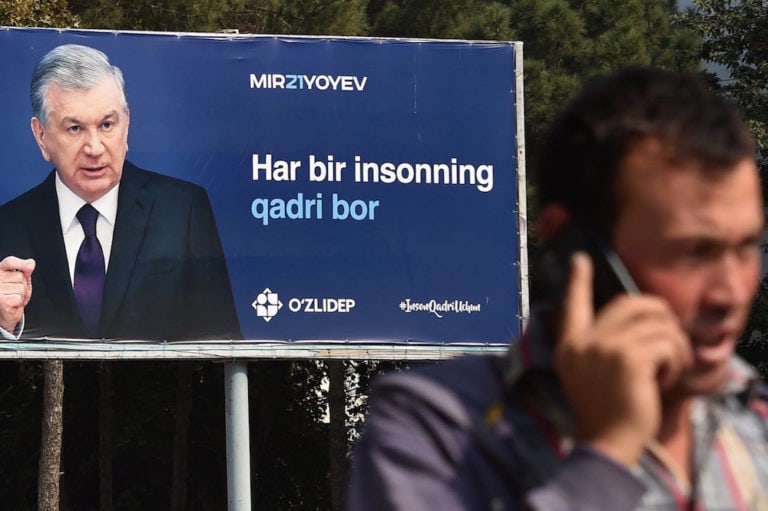(HRW/IFEX) – The following is an abridged version of a 5 February 2008 Human Rights Watch press release: Uzbekistan: Activists Released Before EU Meeting EU Should Sustain Pressure on Tashkent to Release Other Imprisoned Activists (New York, February 5, 2008) – The Uzbek government’s recent release of five individuals imprisoned for human rights work shows […]
(HRW/IFEX) – The following is an abridged version of a 5 February 2008 Human Rights Watch press release:
Uzbekistan: Activists Released Before EU Meeting
EU Should Sustain Pressure on Tashkent to Release Other Imprisoned Activists
(New York, February 5, 2008) – The Uzbek government’s recent release of five individuals imprisoned for human rights work shows that sustained international pressure on Tashkent is effective, Human Rights Watch said today. The releases occurred in the days preceding an important bilateral EU-Uzbekistan meeting in Tashkent on February 5.
The five activists released or amnestied between February 2-4 are Umida Niazova, Saidjahon Zainabitdinov, Dilmurod Muhitdinov, Ikhtior Khamraev, and Bahodir Mukhtarov. Niazova was serving a suspended prison sentence after her seven-year prison term was commuted in May 2007 ( http://hrw.org/english/docs/2007/05/08/uzbeki15881.htm ).
“We are overjoyed that these courageous men and women are finally free, but more than a dozen other activists remain in prison simply because of their peaceful human rights work and criticism of the government,” said Holly Cartner, Europe and Central Asia director at Human Rights Watch. “The EU needs to keep up pressure on Tashkent to release all imprisoned human rights activists.”
Uzbekistan’s release and effective amnesty of imprisoned human rights defenders is among the criteria that the European Union has set for reviewing the sanctions it imposed on Tashkent more than two years ago. The next review of the sanctions is scheduled for late April.
The European Union initially imposed sanctions against Uzbekistan in October 2005, in response to the May 2005 Andijan massacre, in which Uzbek security forces killed hundreds of mostly unarmed protesters, and during the Uzbek government’s ensuing crackdown on civil society.
During its last review, the European Union in October 2007 extended sanctions against Uzbekistan for an additional 12 months. At the same time, however, it temporarily suspended for six months the bulk of the sanctions regime, including a visa ban on eight Uzbek government officials, as a gesture to the Uzbek government.
Nevertheless, the European Union also stressed that sanctions would be automatically reinstated unless Uzbekistan fulfilled the EU’s conditions, which include releasing human rights defenders from detention and ceasing their harassment. Other criteria for Uzbekistan include allowing access by relevant international bodies to prisoners, engaging effectively with the UN special rapporteurs on human rights, and allowing all nongovernmental organizations (NGOs) – including Human Rights Watch – to operate without constraints in Uzbekistan.
EU member states are split as to whether to maintain sanctions against Uzbekistan, and countries like Germany and Spain have claimed that the sanctions have not proven effective and should therefore be dropped altogether. Fortunately, however, a group of EU members including the Netherlands, Ireland, Denmark, Sweden and the United Kingdom have taken a principled position that the sanctions should be extended further until the Uzbek government had met the EU’s clearly stated benchmarks for easing sanctions. To do otherwise, these countries argued, would be to squander the EU’s leverage and undermine its credibility in other human rights crises.
Human Rights Watch stressed that the release and amnesty of a number of human rights defenders proves that a principled stand by the EU can affect human rights positively, even in countries like Uzbekistan.
“The release of these five activists is clearly the result of EU pressure,” said Cartner. “Tashkent has finally understood that it needs to make real concessions for the sanctions to be removed. The EU must now act responsibly to ensure that it maintains pressure until all its criteria are met.”
(. . . )
For the complete press release, please visit: http://hrw.org/english/docs/2008/02/05/uzbeki17984.htm


